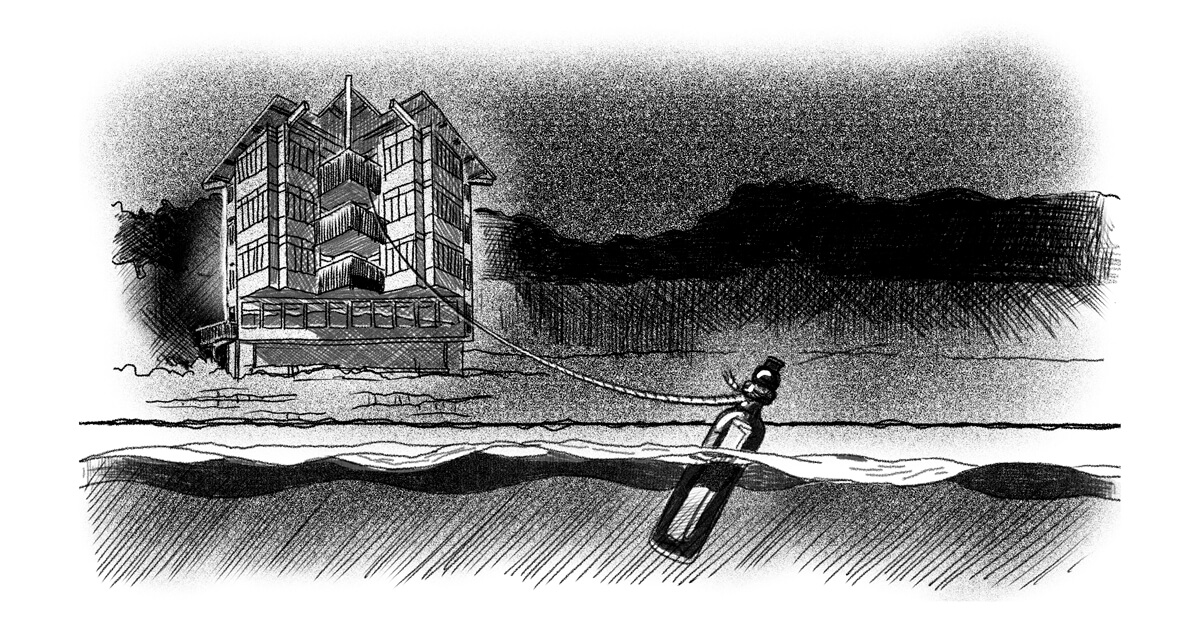
True story: One evening many years ago, a retreat guest who was staying in Black Bluff (that 7 room-building that hangs over the Frio River) wanted to chill a bottle of wine. He secured the bottle to the end of a string and carefully lowered it down the side of the building into the water below. Pleased with himself, he made his way to the Great Hall for the evening session.
The session came and went. Our guest, with a spring in his step, returned to his room and quietly hoisted the bottle up from the dark water. To his bewilderment, the bottle was empty, except for a handwritten note that read:
The Lord giveth, and the Lord taketh away.
We like to think there’s an element of the mystical in this bit of Lodge lore. Of course, it’s probably also quickly explained away—somewhere out there (perhaps even reading this email now!) is another guest who looked out a Black Bluff window only to see a wine bottle descending from above. That guest never showed up for the evening session.
It’s easy to imagine the buzz around the Dining Room the next morning as word of the emptied bottle spread—the laughter that accompanied the retelling. No doubt the guest was invited to recount the “miracle of the message in the bottle” to the delight of everyone reassembled back in the Great Hall.
We miss the laughter of retreats.
Serious stuff happens at the Lodge. Celebrated theologians hold forth, and the content of those talks is picked up in earnest, informal conversations across the weekend. Vulnerability is made possible through music and art and story. Lives are forever changed through retreats. It’s serious.
Yet Lodge guests know that for all that serious stuff, retreats invite plenty of unseriousness, too—laughter, lightness, joy.
A friend tells of a counseling session with Kathleen Norris. Norris’ advice: “Lighten up and watch more TV.”
Another friend tells of a first visit to A.A.: “People told horrible stories about themselves, what they had done. And everyone laughed. I thought this was supposed to be serious. This was where I had finally come to get my life back together, and people are laughing. It took me awhile to realize—yeah, the stuff was seriously bad. But we were here now. It was safe. And we could begin to see the ridiculousness of ourselves. There was hope in that. We could laugh.”
Growth in the spiritual life—serious business that it is—often manifests in an unexpected lightness. Holy folly. Laughter. To take an honest look in any direction can be heartbreaking, tear-inducing. And yet:
“Blessed are you that weep now, for you shall laugh,” Jesus says (Luke 6:21). That means not just that you shall laugh when the time comes, but that you can laugh a little even now in the midst of the weeping because you know that the time is coming. All appearances to the contrary notwithstanding, the ending will be a happy ending. That is what the laughter is about. It is the laughter of faith. It is the divine comedy.” Frederick Buechner